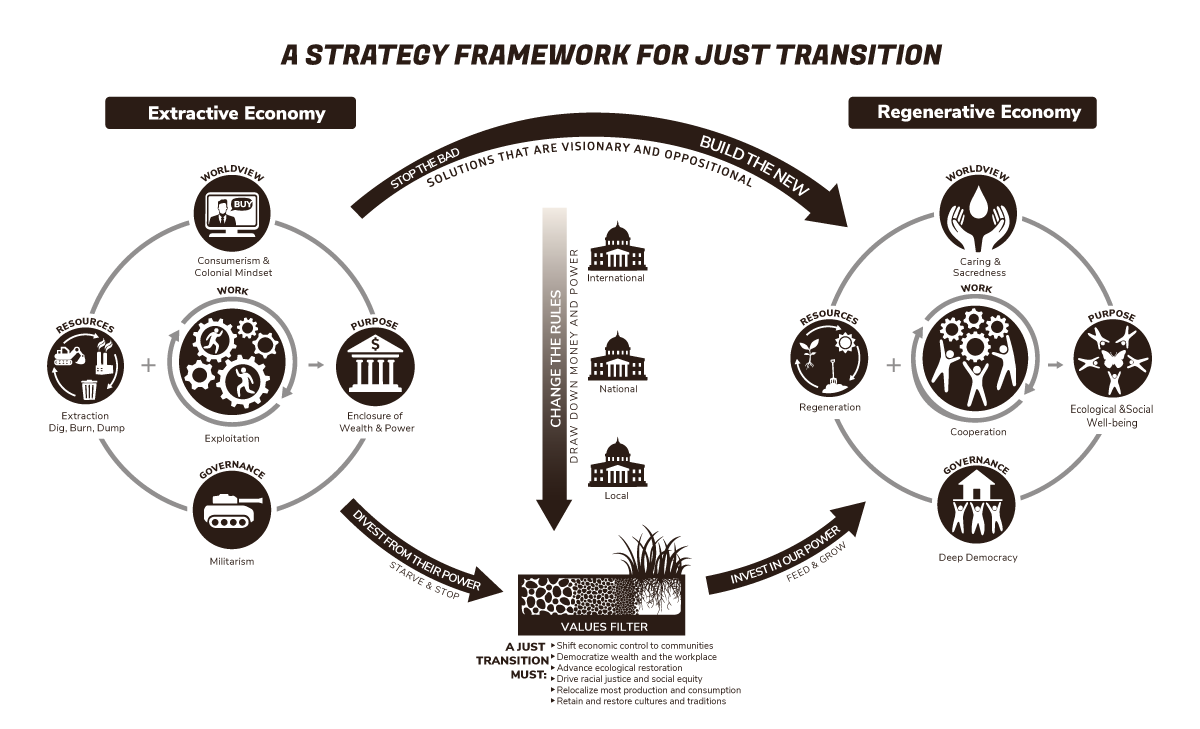Programme Content
Phase 1 - example case and workshop:
In our first session, we explored the concept of allostatic load and ecological health, using the case study of Cancer Alley to demonstrate this in practice. We explored how poverty mediates the relationship between air pollution and health, the environmental racism of oil & gas development sites in the US, and the individualistic responses of public health and oil companies to the health crisis.
Q1: Who benefits from a purely biomedical/individualistic analysis of this situation?
Q2: What are the structures of power and violence (both present and historical) which enable this health injustice to occur?
Q3: What additional factors may explain the increased sensitivity to pollution and worse health outcomes for those in poverty?
Q4: how can an ecological understanding of health support this community in their fight for justice? What alliances could be built using this lens?
Phase 2 - example workshop:
In phase 2, we used the Strategic Framework for A Just Transition, developed by Movement Generation, to explore how ecological health relates to the structures of colonial capitalism.
We asked participants to bring a case study of a health injustice, either from their own research or community, or from the People’s Health Tribunal of Shell and Total, and map the pillars of the extractive economy into this issue.
We then discussed how medical systems are complicit, and mapped how medicine participants in governance by control and militarism, the enclosure of wealth and power, extractivism, the colonial mindset and consumerism.


